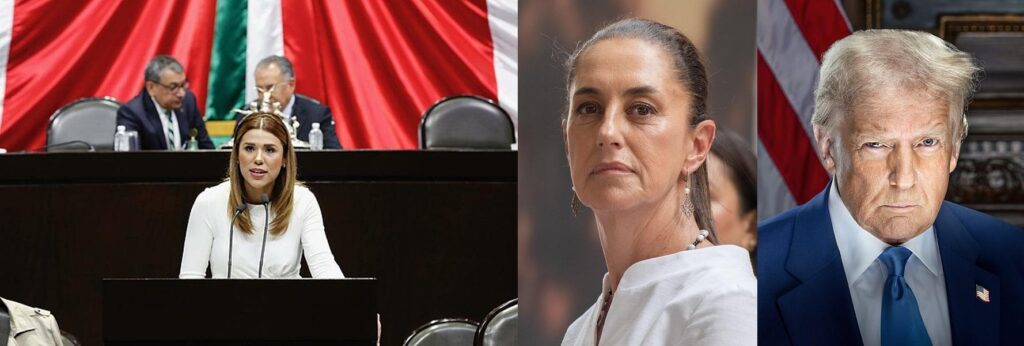Blacklist or Power Move? The U.S. Tightens the Visa Grip on Mexican Officials
Something’s shifting between Mexico and the U.S.—and it’s not the tectonic plates.
Lately, a growing number of Mexican politicians have had their U.S. visas revoked. There were no big press releases. No formal charges. Just quiet denials, awkward press conferences, and canceled trips.
Who’s on the List?
That part’s still murky. Depending on who you ask, there are either 35 or 44 names. What’s more, those names aren’t small. Reports from ProPublica, El Universal, and the Diario de Yucatán point to governors, mayors, lawmakers, and even military officers.
The alleged reasons vary. Some involve organized crime links. Others mention fuel smuggling—a.k.a. huachicol fiscal.
Here are just a few of the names making the rounds:
- Marina del Pilar Ávila, Baja California governor
- Américo Villarreal, Tamaulipas governor
- Alfonso Durazo, Sonora governor
- Samuel García, Nuevo León governor
- Layda Sansores, Campeche governor
- Mario Delgado, federal Education Secretary
- Ricardo Monreal and Adán Augusto López, Morena power players
- Several mayors from Tamaulipas and Chihuahua
- At least four high-ranking generals
- And even Manuel Bartlett, still in the headlines somehow

Map of suspicion: U.S. visa revocations ripple through Mexican politics, with 44 names rumored and Uncle Sam keeping the list sealed.
So… Are These Claims True?
That depends who you ask. Some governments, like Tamaulipas, first called the visa reports “fake news.” Later, they downgraded the statement to “unconfirmed.”
Others went the quiet route. Alberto Granados, mayor of Matamoros, reportedly had his visa yanked while trying to cross into Brownsville. He denied it. But the story didn’t go away.
Marina del Pilar simply said, “It’s not a requirement to govern.” She’s right. But being on a U.S. blacklist doesn’t exactly boost your image either.
What’s Washington Doing?
Apparently, a lot—without saying much.
According to a U.S. official quoted by journalist Tim Golden, canceling visas sends a message. It shows the U.S. is no longer looking the other way.
Instead of courtrooms and criminal cases, Washington is using its travel system as a pressure valve. No charges, no trials—just a silent pushback.
This quiet strategy lets the U.S. act without sparking a full-blown diplomatic firestorm. For now, it’s working.
Why This Matters
Even if there are no indictments, the consequences are real. A revoked visa can hurt relationships, business, and international credibility.
It also raises bigger questions. If the U.S. is willing to act alone, what comes next? Will there be sanctions? Will the public ever see the full list?
More importantly: how will the Mexican government respond if the quiet list keeps growing?
One thing is certain—this isn’t just about travel. It’s about power, politics, and pressure.
And for many Mexican politicians, the message seems clear: stay clean—or stay home.
If you’re wondering whether this is the start of something bigger, the answer might be: yes, and it’s already happening.



2 Comments